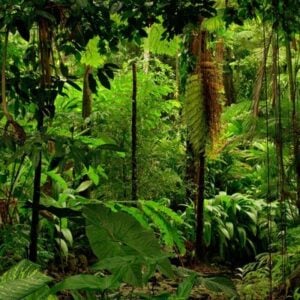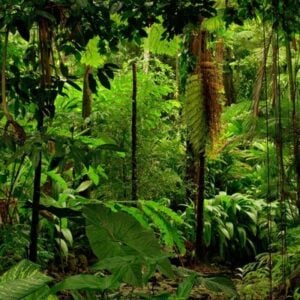In 2024, Ghana advanced the implementation of the “Nature-based Climate Adaptation in the Guinean Forests of West Africa” (NbS) project, which is coordinated by the International Union for Conservation of Nature (IUCN) and national partners. The initiative focuses on strengthening forest ecosystem resilience and improving local livelihoods through intensified community support, training, and restoration monitoring.
Through a partnership with the Ministry of Agriculture and CSIR-FORIG, 47 local operators were trained in the establishment and sustainable management of community nurseries. These nurseries produced over 73,500 seedlings, including native and fruit tree species such as Milicia excelsa, Triplochyton scleroxylon, Khaya ivorensis, coconut, and oil palm. Additionally, vegetables like okra, chili, and cucumber were cultivated. Notably, women made up 79% of those participating in these activities, highlighting a strong gender-inclusive approach to biodiversity restoration.
To enhance accountability and track restoration efforts, IUCN mapped more than 1,300 hectares of restored land across the Wassa Amenfi and Lake Bosomtwe areas. Twenty-one recent university graduates received training to use the Regreening Africa app—developed by CIFOR-ICRAF—to monitor progress in agroforestry plantations, buffer zones, and forest reserves.
Furthermore, 30 hectares of forest were restored within the Bura and Bosomtwe reserves using the modified Taungya system, a method that integrates forest conservation with agricultural income generation. This approach, implemented with the Ghana Forestry Commission, promotes sustainable forest management and climate resilience for surrounding communities.
These developments demonstrate the effectiveness of nature-based solutions in addressing climate change and biodiversity loss, while also fostering social inclusion and sustainable development.







